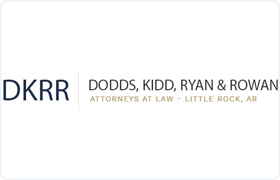Little Rock Felony Lawyer, Arkansas, page 7
Sponsored Law Firm
-
 x
x

Click For More Info:
-
Dodds, Kidd, Ryan & Rowan, Attorneys at Law
313 W. 2Nd St. Little Rock, AR 72201» view mapCriminal Defense Unrelenting Pursuit Of Justice
Our lawyers are committed to taking the time to get to know you, your legal concerns and the ideal resolution to your case that will be meaningful to you.
800-936-8091
Not enough matches for Little Rock Felony lawyer.
Below are all Little Rock Criminal lawyers.
Christopher Lynn Lacy
Criminal, Contract, Family Law, Landlord-Tenant
Status: In Good Standing Licensed: 12 Years
Stephen A Shoptaw
Estate, Divorce & Family Law, Criminal, Accident & Injury, Mass Torts
Status: In Good Standing
FREE CONSULTATION
CONTACT Judson Kidd Little Rock, AR
Judson Kidd Little Rock, AR AboutDodds, Kidd, Ryan & Rowan, Attorneys at Law
AboutDodds, Kidd, Ryan & Rowan, Attorneys at Law Practice AreasExpertise
Practice AreasExpertise
